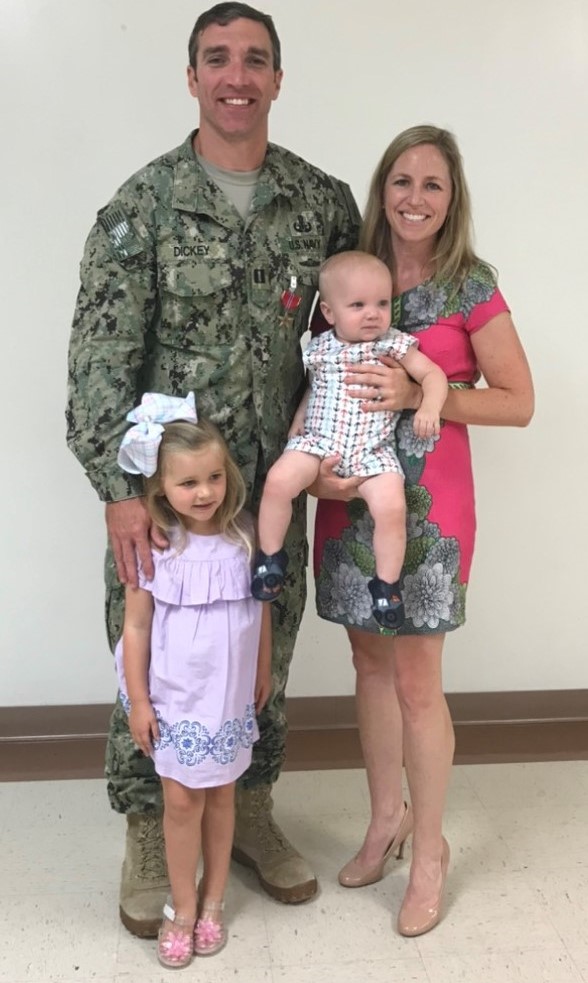
When Heather Dickey began unpacking from her second move to Herndon, Virginia, one thought that didn’t enter her mind was, “I need to get a job.” That is because Heather was able to keep her job despite the move, but most military spouses are not so fortunate.
Moving between duty stations wreaks havoc on military spouses’ careers. Not only do most of them have to quit their jobs because of a move, they then face a long period of unemployment afterward. As a result, for the majority of military spouses, unemployment and underemployment are significant challenges. Their unemployment rate ranges between 20% and 25%, nearly seven times higher than the U.S. national average of 3.6%, and their underemployment rates can be as high as 35% to 40%.
It’s even harder for those military spouses with a college degree like Heather. Military spouses with degrees experience longer periods of unemployment and the most difficultly finding meaningful work as compared to their counterparts in part-time or seasonal positions. And those in part-time or seasonal roles struggle as well. The majority prefer full-time or permanent work, and, like most American families, their families need two incomes.
For Heather, working at Cisco has been a stabilizing force in her life. Despite the many moves – five total and another happening soon – throughout her thirteen-year career at the company, she has been able to count on her managers and colleagues.
“Cisco’s has always been incredibly supportive to me. I’ve held eight different roles on eight different teams and people have been so kind and willing to help. Often my colleagues will ask ‘how’s your husband doing,’ ‘how’s your family’, etc. It makes all the difference,” she says.
Now a partner services and software manager on Cisco’s Field Partners and Public Sector team,
Heather is also helping to provide more support to military spouses at Cisco through the newly formed Cisco MilSpouse Connection program, part of Cisco’s Veterans Program.
One way she is expanding support is by organizing a Military Spouse Career Day, where spouses receive professional headshots and help with their resumes, meet third-party companies that are hiring, and learn how to tailor their unique skill sets to what hiring managers are looking for. The event is a spin off of the Veterans Career Transition Day Cisco has organized for the last five years, where military spouses are also invited to attend.
These events are just a small part of what Cisco offers for veterans and military spouses. Cisco’s Veterans Program encompasses a wide variety of career and training resources, including:
- The Veterans Talent Incubation Program, a pipeline for service members and veterans to obtain CCNA certification career and a job at Cisco
- Scholarships for CyberVetsUSA, an industry-led, cybersecurity skills-to-jobs initiative for veterans and military spouses offered in Virginia, Maryland, and North Carolina
- The Talent Bridge for Veterans Matching Engine, which connects qualified military talent to Cisco’s partner ecosystem.
In addition, Cisco is a founding member of the nationally recognized Veterans Job Mission and has trained over 94,000 military personnel in IT skills through it Networking Academy.
But, Gena Pirtle, military & workforce programs manager at Cisco, wants to do more.
“Many military spouses, most of whom are women, have post-secondary education and industry training, but because they have gaps in their employment, due to frequent deployments, end up taking jobs that are well below their skill level so they can contribute to their family income,” Gena says. “These spouses have the qualities employers like Cisco look for in top candidates: perseverance, resourcefulness, commitment. We would be missing out on a valuable pool of talent if we didn’t find ways we could build bridges to engage this community.”
One challenge, however, to better supporting the military spouse community is connecting with them. Military spouses don’t always share that they are part of the military community with their managers and coworkers out of fear of judgement or that they won’t understand. Additionally, they don’t want to be seen as needing special treatment.
“Trying to juggle the responsibilities of the home front with my responsibilities at Cisco isn’t always easy. I was afraid to share with my team what was going on in my life out of fear that it may be frowned upon,” says Heather. “But what I discovered is that the more you open yourself up, the more people understand and can help. I’ve gotten to the point where I can say ‘hey, I need some extra grace, because my husband is gone for six months.’“
For Gena, ensuring veterans and employees like Heather are fully supported and thriving is what drives her.
“The most important part of my job is helping individuals tap into their potential to make a difference. We want to engage military spouse employees at Cisco, and those who support them, to help raise awareness and expand our reach,” says Gena. “Our Veterans Program and partner ecosystem offer training and pathways to meaningful employment that can help lift up our MilSpouse community. That’s something we can all feel good about.”
Get more information on Cisco’s Veterans Program.
If you are a Cisco employee and military spouse who would like to connect with the Cisco military spouse community, please email militaryspouse@cisco.com to receive the new Cisco MilSpouse Connection mailer.


CONNECT WITH US